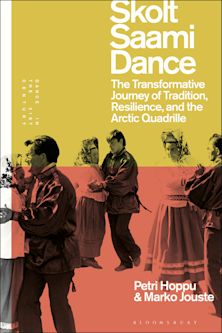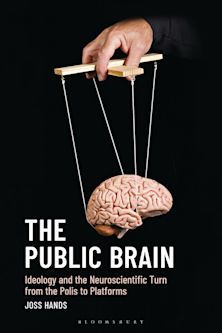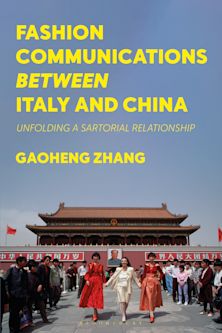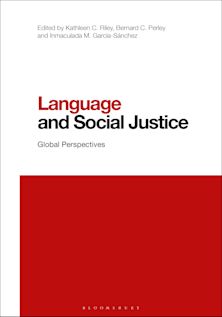- Home
- ACADEMIC
- Anthropology
- Cultural Anthropology
- Poststructuralism, Marxism, and Neoliberalism
Poststructuralism, Marxism, and Neoliberalism
Between Theory and Politics
- Textbook
Poststructuralism, Marxism, and Neoliberalism
Between Theory and Politics
- Textbook
This product is usually dispatched within 3 days
- Delivery and returns info
-
Free US delivery on orders $35 or over
Exam copy added to basket
Choose your preferred format. Please note ebook exam copies are fulfilled by VitalSource™.
You must sign in to add this item to your wishlist. Please sign in or create an account
Description
This introduction to the politics of poststructuralism focuses on two interrelated themes: the culture of Western Marxism and contemporary neoliberal capitalism. Poststructuralism is not a form of anti-Marxism, Peters argues; indeed, poststructural philosophers view themselves in some kind of relationship to the legacy of Marx. Either they have been Marxist or still view themselves as Marxist. In a post-Marxist era they have invented new ways of reading and writing Marx. Peters critically engages neoliberalism, an ideology that is committed to the revitalization of homo economicus and neoclassical economics. This book is a deconstruction of neoliberalism, considered as a world-historical political project aimed at a form of globalisation.
Table of Contents
Chapter 2 Poststructuralist Marxisms
Chapter 3 Lyotard, Performativity, and the Problem of Capitalism
Chapter 4 Derrida, Neoliberalism, and Democracy to Come
Chapter 5 Foucault, Neoliberalism, and the Governance of Welfare
Chapter 6 Deluze's "Societies of Control": From Disciplinary Pedagogy to Perpetual Training in the Knowledge Economy
Chapter 7 Neoliberalism, Individualism and Global Futures
Chapter 8 Bibliography
Chapter 9 Index
Product details
| Published | Oct 23 2001 |
|---|---|
| Format | Paperback |
| Edition | 1st |
| Extent | 176 |
| ISBN | 9780742509870 |
| Imprint | Rowman & Littlefield Publishers |
| Dimensions | 9 x 6 inches |
| Publisher | Bloomsbury Publishing |
About the contributors
Reviews
-
Micheal Peters is thoroughly immersed in the 'politics of poststructualism' but expresses his ideas with an enviable clarity and power. For anyone trying to understand what holds poststructuralism, as a 'movement of thought,' together, this is the place to start.
Stephen J. Ball, University of London
-
An outstanding book. . . Michael Peters provides an excellent critical survey of several major twentieth century French thinkers who either respond to or play against poststructuralist ideas and values as they grapple with political challenges of neoliberalism, globalization, and the rise of a knowledge economy . . . very readable and theoretically important.
Timothy Luke, Virginia Polytechnic Institute and State University
-
Peters provocatively challenges many misreadings of poststructural (and postmodern) writings on political and cultural analysis. He shows the relation and divergences of this writing to Marxism and finally, provides ways in which to seriously rethink the political in contemporary life. Poststructuralism, Marxism, and Neoliberalism is well-written, lucid in argument, and insightful in how it moves the philosophical discourses into policy and political analysis.
Tom Popkewitz, University of Wisconsin, Madison



































